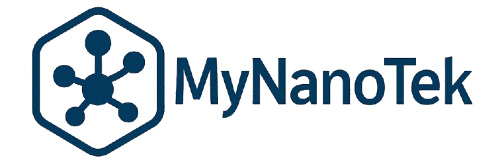The ethics of nanotech in human enhancement
What if We Could Enhance Ourselves Beyond Natural Limitations?
Imagine a world where humans can enhance their physical and mental abilities beyond what nature has prescribed. This isn’t the opening of a science fiction story; it’s a potential reality thanks to advances in nanotechnology. But as we stand on the brink of this new era, it’s crucial to ask: are we ready for the ethical challenges these innovations present?
The Promise and Peril of Nanotechnology in Human Enhancement
Nanotechnology, the manipulation of matter on an atomic, molecular, and supramolecular scale, offers remarkable possibilities for human enhancement. From improving cognitive functions to increasing physical strength and longevity, the applications are numerous. However, these innovations aren’t without potential pitfalls.
Encadré: What is Nanotechnology?
Nanotechnology involves working with materials at the nanoscale, typically between 1 to 100 nanometers. A nanometer is one-billionth of a meter, much smaller than the wavelength of visible light and the size of a single atom.
Ethical Dilemmas: Where Do We Draw the Line?
As with any powerful technology, the potential for misuse or unintended consequences looms large. Here are some key ethical considerations:
- Equity and Access: Who gets access to these enhancements? Will they be available to all, or only to a privileged few?
- Identity and Humanity: What does it mean to be human if we can artificially enhance our abilities?
- Consent and Autonomy: How do we ensure individuals fully understand the potential risks of nanotech applications?
“The question of what it means to be human – and what it means to be enhanced – is a prevalent theme in bioethics.” — Leon Kass
Societal Impacts: A Double-Edged Sword
The societal impacts of widespread human enhancement could be profound. While the benefits could include improved healthcare outcomes and productivity, there is also the risk of exacerbating existing inequalities and creating new forms of discrimination.
Consider the potential for a societal divide between those who are enhanced and those who are not. Such a divide could lead to new forms of bias, where “naturals” may face discrimination or lose competitiveness in various fields.
Regulation and Governance: A Necessary Framework
The development of robust regulatory frameworks is essential to ensure safe and ethical use of nanotechnology in human enhancement. This includes:
- Establishing international guidelines for the deployment of nanotech enhancements.
- Ensuring transparency in the development and use of these technologies.
- Creating platforms for public discussion and engagement on ethical issues.
According to the National Institutes of Health, engaging with a diverse range of stakeholders, including ethicists, scientists, and the public, is essential to navigate these complex issues effectively.
Innovation with Responsibility: The Path Forward
As we advance, responsible innovation must be at the core of our approach to nanotechnology. Promoting a culture of ethical consideration in scientific communities and fostering education about the potential impacts of these technologies is critical.
Furthermore, collaborative efforts between governments, industries, and educational institutions can help create a balanced perspective that prioritizes human dignity and well-being.
“With great power comes great responsibility.” — Voltaire
Engaging the Public: A Collective Responsibility
Public engagement is crucial in shaping the future of nanotech applications in human enhancement. By involving citizens in discussions and decision-making processes, we can ensure that diverse perspectives are considered, leading to more inclusive and ethical outcomes.
Organizations and policymakers should actively seek to educate and inform the public about the potential and risks associated with future tech, fostering a society that is both informed and prepared.
Conclusion: Now It’s Your Turn
The ethical landscape of nanotechnology in human enhancement is complex and evolving. As we continue to push the boundaries of what’s possible, it’s essential for each of us to engage with these issues, question the implications, and contribute to a discourse that prioritizes ethical integrity.
What are your thoughts on the use of nanotechnology for human enhancement? How do you think society can best navigate these challenges? Join the conversation and help shape the future responsibly.
